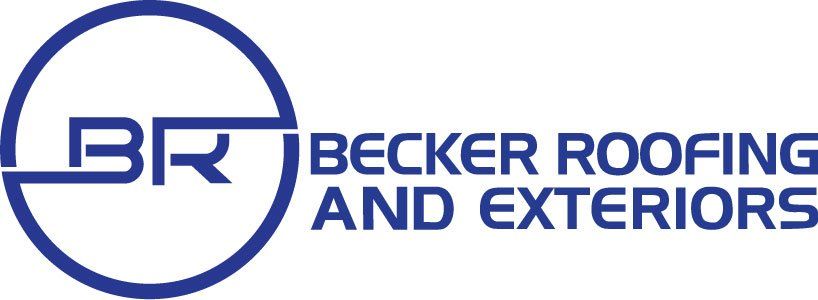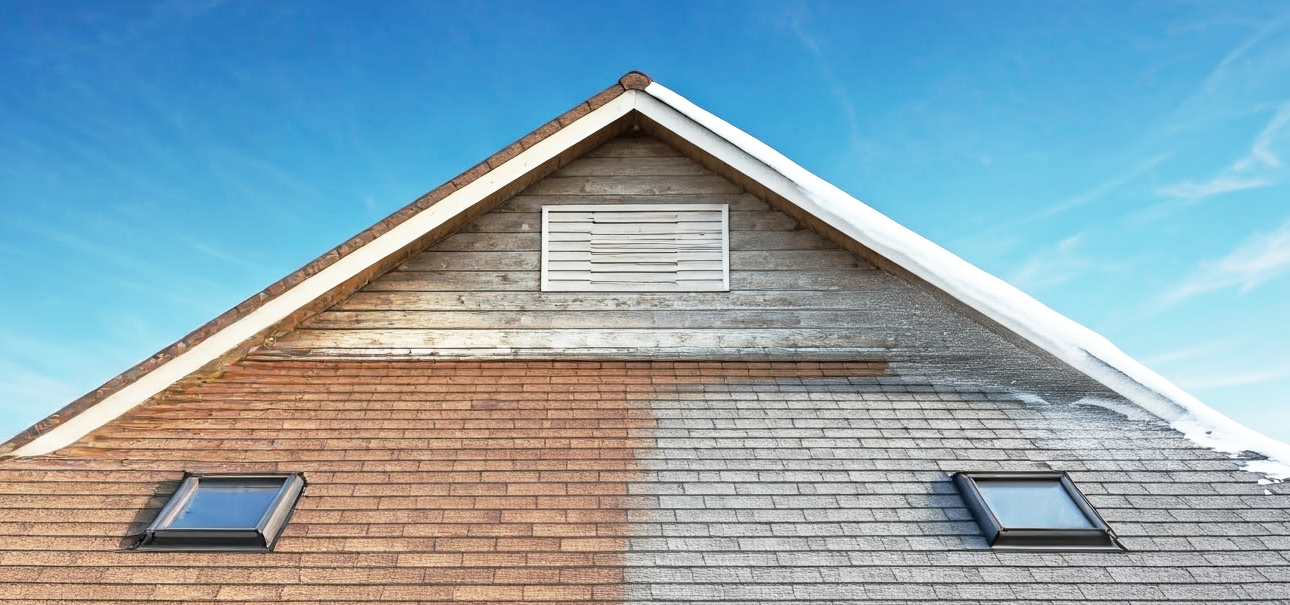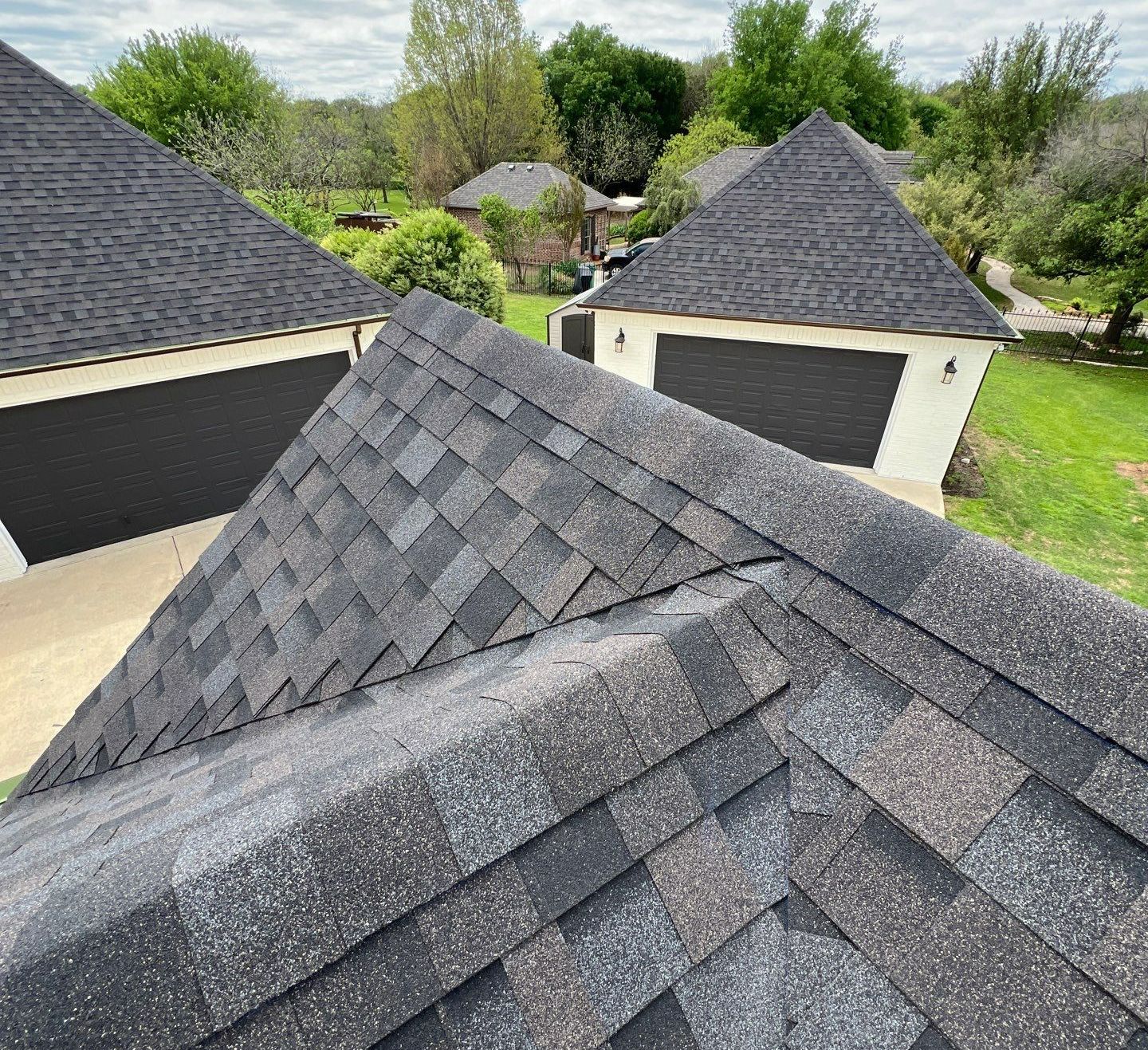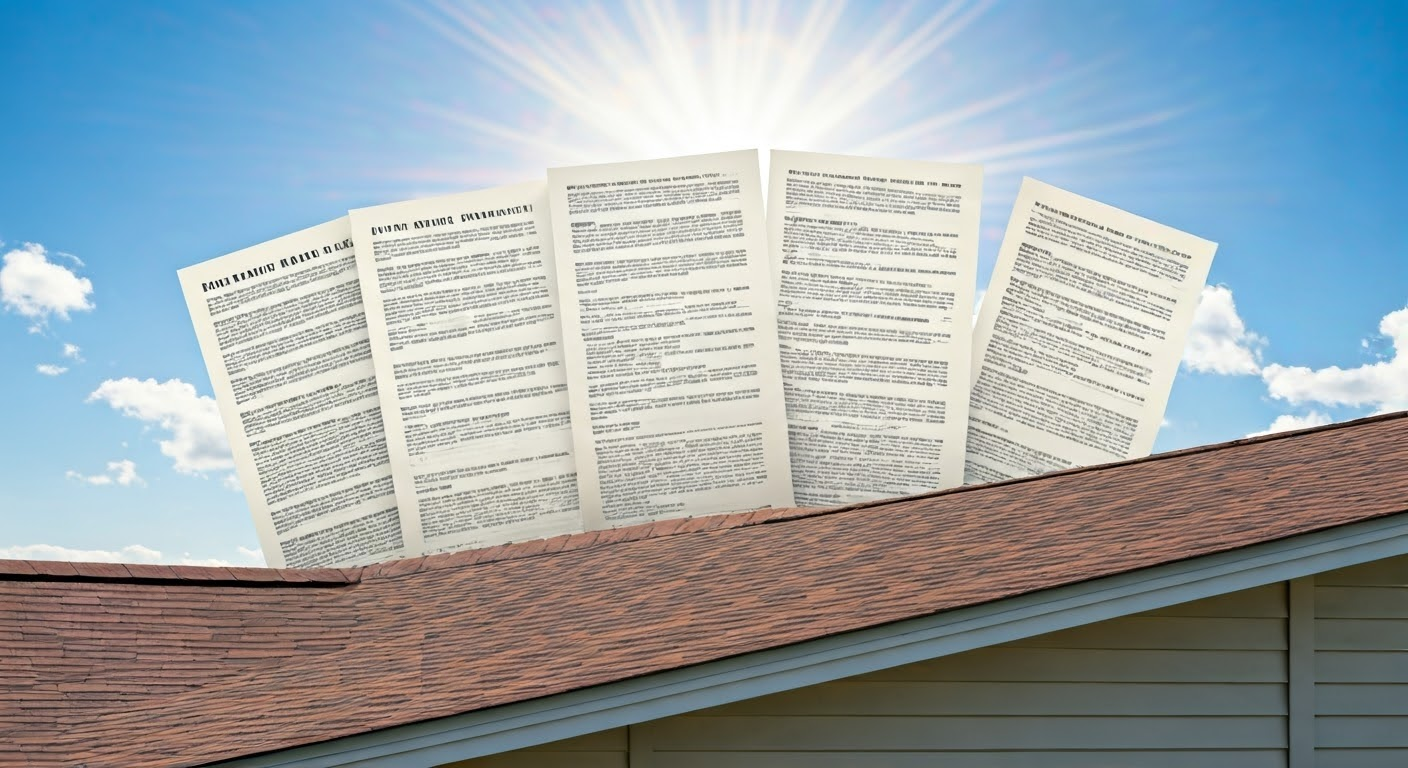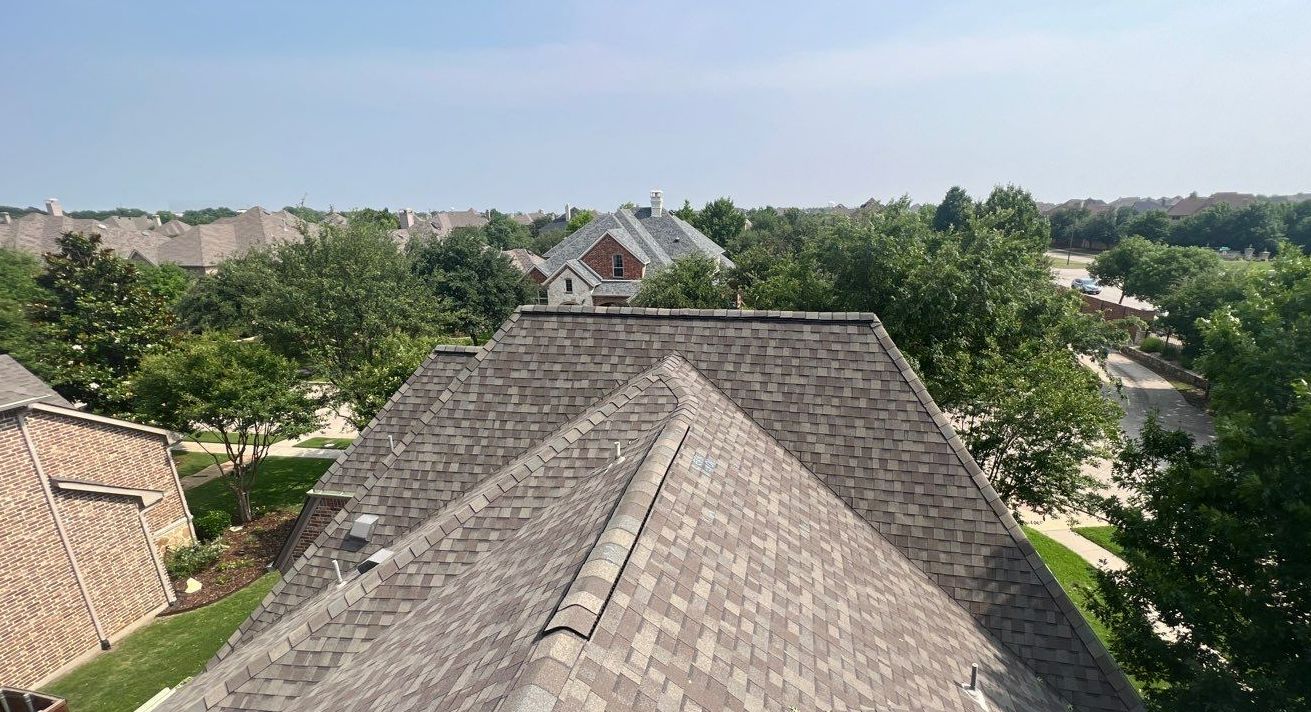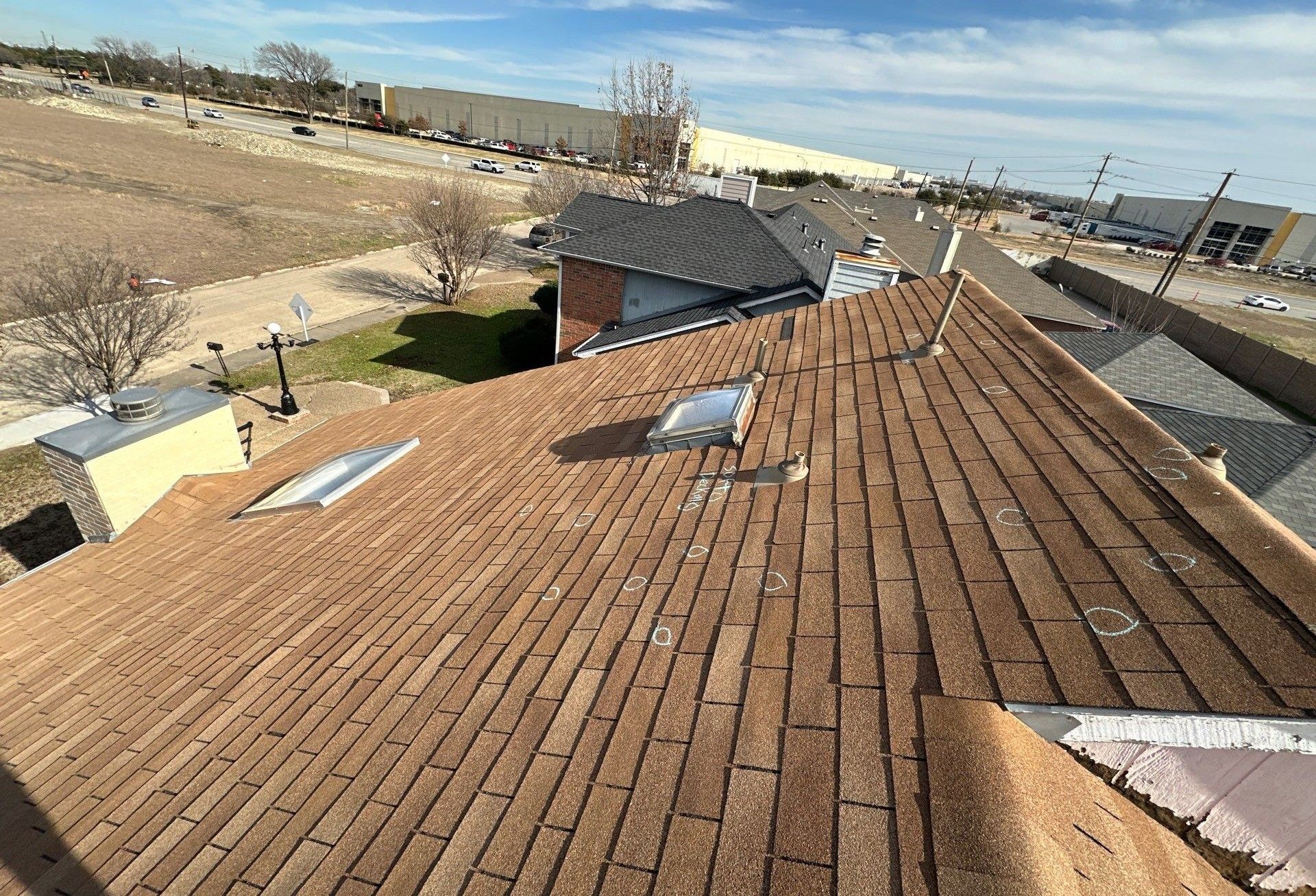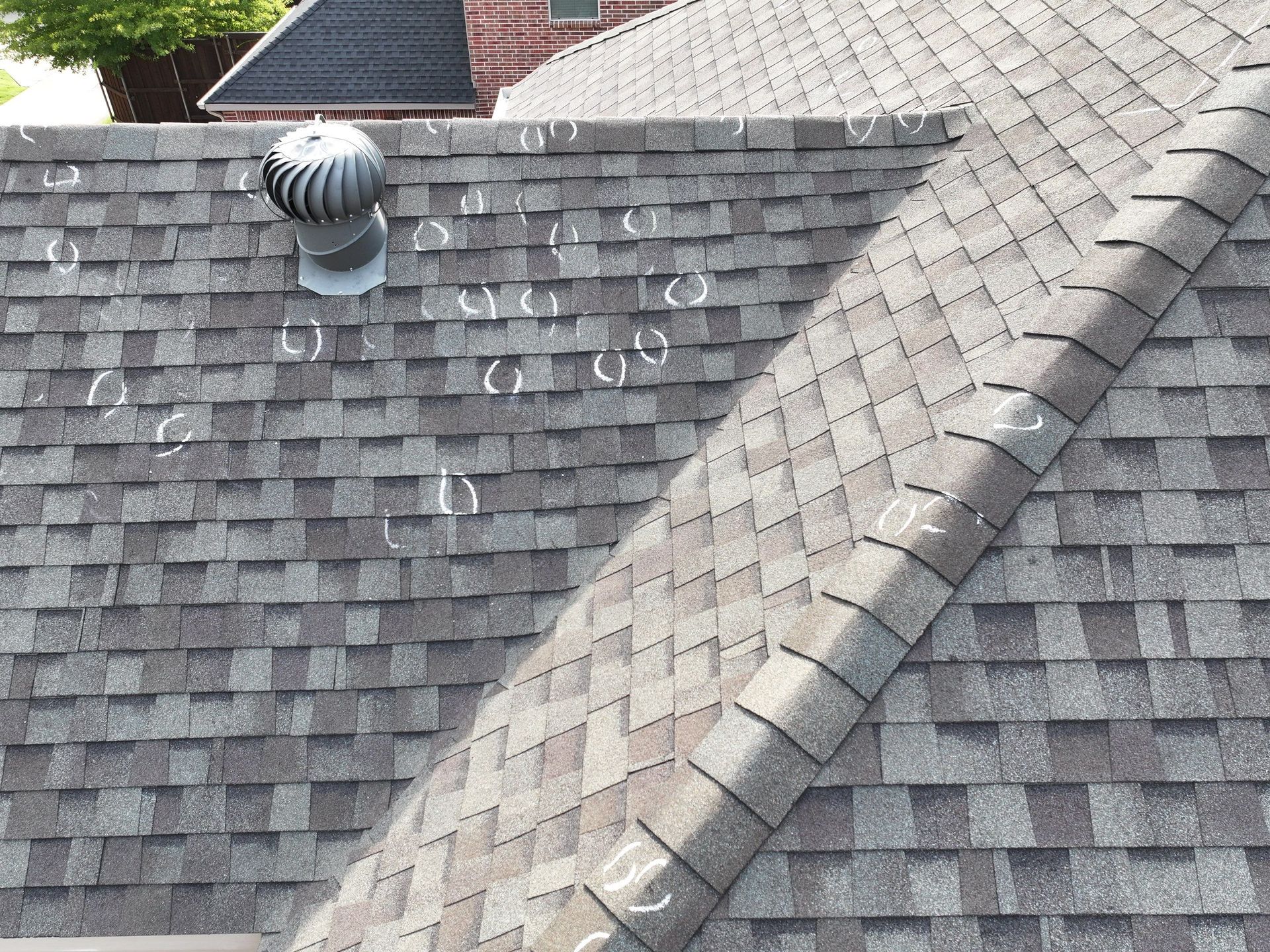Roof Replacement Deductible: What You Need to Know
Learn about the deductible for roof replacement and how it impacts your expenses. Visit our blog for detailed information.

Do You Have to Pay Deductible for Roof Replacement?
Key Highlights
- When it comes to roof replacement, the question of whether or not you to pay a deductible is a common one.
- Understanding the role of deductibles in roofing insurance claims is key to navigating the process.
- While some roofing companies may offer to waive your deductible, it is important to consider the legal and financial risks associated with this.
- Skipping the deductible can have consequences for your insurance claim and may leave you financially vulnerable.
- There are alternative solutions available, such as negotiating payment plans with your contractor or taking advantage of promotions and discounts.
- Ultimately, paying your deductible is a necessary part of the insurance process and provides you with peace of mind knowing that your roof replacement is covered.
Introduction
Roof replacement is a significant investment for any homeowner. Whether it's due to storm damage or simply the age of your roof, the cost can be substantial. One question that often comes up when considering roof replacement is whether or not you have to pay a deductible. In this blog, we will explore the ins and outs of roof replacement deductibles to help you understand the process and make informed decisions.
When it comes to roof replacement, working with a reputable roofing contractor is crucial. A professional roofing company, like XYZ Roofing Services, will not only provide high-quality roofing products and installation, but also guide you through the insurance process, ensuring that your asphalt shingle roof replacement is covered. Customer satisfaction should be a priority for any commercial roofing company, so choosing a contractor with a track record of delivering excellent service and offering a free estimate for a new roof installation is essential. Additionally, be sure to inquire about extended warranties for even longer-lasting peace of mind and exceptional customer service.
Understanding how deductibles work in roofing insurance claims is key to navigating the process. In many cases, insurance policies require homeowners to pay a deductible before coverage kicks in. The deductible is the amount you are responsible for paying out of pocket before your insurance company covers the remaining cost of the roof replacement. This deductible is typically a set amount or a percentage of the total replacement cost.
Understanding Roof Replacement Deductibles
Roof replacement deductibles are a standard part of most roofing insurance policies. The purpose of the deductible is to ensure that homeowners have some financial responsibility in the event of roof damage. By requiring a deductible, insurance companies aim to reduce fraudulent claims and encourage responsible maintenance of roofs.
Paying your deductible provides you with peace of mind, knowing that your insurance policy will cover the majority of the roof replacement cost. It also incentivizes homeowners to take care of their roofs and prevent future damage. While it may be tempting to try to avoid paying the deductible, doing so can have significant consequences for your insurance claim and leave you financially vulnerable, especially if you neglect to fix small problems in your gutter system that can lead to more extensive damage.
What Is a Deductible in Roofing Insurance Claims?
In roofing insurance claims, a deductible is the amount of money that the homeowner is responsible for paying out of pocket before the insurance company covers the remaining cost of the roof replacement. The deductible is typically a set amount or a percentage of the total replacement cost.
For example, if your roof replacement cost is $10,000 and your deductible is $1,000, you would be responsible for paying the deductible upfront. Once you have paid the deductible, your insurance company will cover the remaining $9,000.
Deductibles are designed to protect insurance companies from fraudulent claims and encourage responsible maintenance of roofs. They also provide homeowners with a financial stake in the repair or replacement process, ensuring that they take an active role in protecting their property.
The Role of Deductibles in Your Roof Replacement Project
Deductibles play a crucial role in your roof replacement project. They help determine the amount you will need to pay out of pocket before your insurance coverage kicks in. The deductible amount can vary depending on your insurance policy and the terms and conditions set by your insurance provider.
In the event of storm damage or other covered perils, your insurance policy will typically cover the cost of the roof replacement minus the deductible. The deductible acts as a financial buffer for the insurance company and ensures that homeowners have some responsibility in the repair or replacement process.
It's important to note that the deductible is separate from any additional costs for upgrades or improvements to your roof. These costs are typically not covered by insurance and would be your responsibility to pay in addition to the deductible.
Legal Considerations for Roofing Deductibles
When it comes to roofing deductibles, there are legal considerations that homeowners and roofing companies must be aware of. State laws and regulations can vary, so it's important to understand the legal requirements in your area.
Is It Legal for Contractors to Waive Your Deductible?
While some roofing contractors may offer to waive your deductible, it is important to consider the legality of this practice. In many states, it is illegal for contractors to waive deductibles as it can be seen as insurance fraud. Contractors who engage in this practice may face legal consequences, and homeowners who participate may also be held liable.
State Laws and Regulations on Roofing Deductibles
State laws and regulations on roofing deductibles vary, so it's essential to familiarize yourself with the specific laws in your area. Some states have strict regulations that prohibit contractors from waiving deductibles, while others may allow limited deductible waivers under certain circumstances.
It's important to consult with a reputable roofing contractor and understand the laws in your state before making any decisions regarding your deductible. Working with a knowledgeable professional can help ensure that you navigate the insurance process legally and avoid any potential legal or financial risks.
The Consequences of Not Paying Your Deductible
Not paying your deductible can have significant consequences for your insurance claim and your financial well-being. Insurance companies require deductibles to ensure that homeowners have some financial responsibility in the event of roof damage.
If you choose to skip paying your deductible, your insurance company may deny your claim or reduce the amount they will cover. This could leave you with a substantial out-of-pocket expense for your roof replacement, putting a strain on your finances.
How Skipping the Deductible Can Affect Your Insurance Claim
Skipping the deductible can have a negative impact on your insurance claim. Insurance companies expect homeowners to pay their deductibles as a condition of coverage. If you choose to waive your deductible or not pay it, your insurance company may view this as a breach of the terms of your policy.
This could result in your claim being denied or your coverage being reduced. In the event of future roof damage or other insurance claims, your insurance company may also scrutinize your claims more closely, potentially leading to further denials or coverage limitations.
Potential Legal and Financial Risks
Skipping your deductible can expose you to potential legal and financial risks. In many states, waiving deductibles is illegal and can be considered insurance fraud. If you participate in this practice, you could face legal consequences and be held liable for any damages or losses.
From a financial perspective, not paying your deductible means you are not fulfilling your financial obligation as outlined in your insurance policy. This could result in your insurance company pursuing legal action to recover the unpaid deductible or refusing to provide coverage for future claims.
Alternative Solutions to Handling Deductibles
While paying your deductible is a necessary part of the insurance process, there are alternative solutions available to help homeowners handle the financial burden. These solutions can provide flexibility and ease the financial strain of paying the deductible upfront.
Negotiating Payment Plans with Your Contractor
One alternative solution is to negotiate payment plans with your roofing contractor. Many contractors offer flexible payment options that allow you to spread out the cost of the deductible over time. This can help alleviate the financial burden and make the roof replacement more affordable.
Using Promotions or Discounts Instead of Deductible Waivers
Another alternative solution is to take advantage of promotions or discounts offered by roofing companies. Some companies may offer special promotions or discounts that can help offset the cost of the deductible. This can be a win-win situation, as it allows you to save money while still fulfilling your financial obligation.
The Ethics Behind Deductible Waivers
While some roofing contractors may offer to waive your deductible, it's important to consider the ethics behind this practice. Waiving deductibles can be seen as insurance fraud and is generally not considered ethical within the roofing industry. It is important to work with reputable contractors who uphold ethical standards and follow the legal guidelines set forth by state regulations.
Why Some Contractors Offer to Cover Deductibles
Some contractors may offer to cover deductibles as a way to attract customers and gain a competitive edge in the market. By waiving the deductible, they can make their services more appealing and affordable to homeowners. This can increase customer satisfaction and build a positive reputation for the contractor. However, it's important for homeowners to be cautious when contractors offer to cover deductibles, as it may raise ethical concerns and potentially violate the law. Homeowners should always verify the legitimacy of such offers and ensure that they are not engaging in fraudulent practices.
The Impact on Industry Standards and Practices
The practice of waiving deductibles in the roofing industry can have a significant impact on industry standards and practices. While some contractors may offer this as an incentive to customers, it can create an imbalance in the market and compromise the integrity of pricing structures. Deductibles are put in place by insurance companies to ensure that homeowners have a financial stake in the repair or replacement process. When contractors waive deductibles, it can result in inflated pricing and potentially fraudulent practices. It is important for both contractors and homeowners to understand the implications of deductible waivers and adhere to industry standards and ethical practices.
Insurance Companies' Stance on Deductible Waivers
Insurance companies generally do not endorse or support deductible waivers offered by contractors. Deductibles are a standard part of insurance policies and are intended to share the financial responsibility between the homeowner and the insurance provider. When contractors waive deductibles, it can lead to inflated pricing and potential fraud. Insurance companies may closely scrutinize roofing claims that involve deductible waivers to ensure that they are legitimate and not part of any fraudulent activity. It is important for homeowners to be transparent with their insurance providers about deductible waivers to avoid potential issues with their claims.
How Insurance Providers View Deductible Waivers
Insurance providers view deductible waivers with caution and may closely examine claims that involve such waivers. While deductibles are a standard part of insurance policies, contractors offering to cover them can raise concerns about fraud and inflated pricing. Insurance providers want to ensure that claims are legitimate and that the financial responsibility is shared between the homeowner and the insurance company. Homeowners should always be transparent with their insurance providers about any deductible waivers to avoid potential issues with their claims. It is essential to adhere to industry standards and ethical practices when it comes to deductible waivers to maintain a positive relationship with insurance providers.
Reporting Deductible Waivers: Should You?
Reporting deductible waivers to insurance companies is crucial for transparency and ensuring compliance with insurance policies. While some contractors may suggest not reporting deductible waivers to save costs, it is important to consider the potential risks and consequences. Failing to report deductible waivers can be seen as insurance fraud and may result in coverage denial or legal action. Homeowners should consult with their insurance providers and follow their guidelines regarding deductible waivers. It is always better to be honest and transparent with insurance companies to avoid any complications during the claims process. By reporting deductible waivers, homeowners can maintain the integrity of their insurance claims and protect themselves from potential legal risks.
Protecting Yourself from Fraudulent Roofing Practices
Protecting yourself from fraudulent roofing practices and ensuring a quality roof replacement starts with hiring a reputable roofing contractor in North Texas. Look for contractors with years of experience, proper certifications, and positive customer reviews, demonstrating their commitment to excellence and professionalism. Verify their licenses and insurance coverage to ensure they are legitimate. Additionally, always request a written contract that outlines the scope of work, materials used, including high-quality roofing materials, and payment details. Be cautious of contractors who offer to cover deductibles or provide significantly lower estimates than others. Remember, peace of mind comes from working with trustworthy professionals who prioritize your satisfaction and adhere to industry standards, including a high level of workmanship. Look for the "Angi Certified" badge when browsing our pro listings to ensure you are working with a GAF certified and reputable roofing contractor in North Texas. Don't forget to schedule a free inspection and estimate with us today to ensure the best quality and service for your roofing needs.
Red Flags to Watch Out for When Replacing Your Roof
When replacing your roof, it's important to watch out for red flags that may indicate potential fraudulent or unprofessional practices by roofing contractors. Some red flags to be aware of include:
- Contractors who pressure you into making immediate decisions or signing contracts without proper review
- Contractors who provide significantly lower estimates than others without proper justification
- Contractors who lack proper certifications, licenses, or insurance coverage
- Contractors who do not provide a written contract outlining the scope of work, materials used, and payment details
- Contractors who are unwilling to provide references or past project examples
- Contractors who ask for full payment upfront before starting the project
Being aware of these red flags can help you avoid potential scams and ensure that you hire a reputable roofing contractor for your roof replacement needs.
Questions to Ask Your Contractor About Deductibles
When discussing deductibles with your roofing contractor, it's important to ask the right questions to ensure clarity and transparency. Some questions you can ask include:
- Do you offer to cover deductibles?
- How does the deductible payment process work?
- Will the deductible be incorporated into the overall contract price?
- Will the deductible payment be made directly to the insurance company or to the contractor?
- Can you provide a breakdown of the costs including the deductible amount?
- What happens if the insurance company denies the claim or reduces the coverage amount?
- Do you have any references or past clients who can vouch for your deductible policies?
Asking these questions will help you understand the contractor's approach to deductibles and ensure that you are fully informed before making any decisions.
Conclusion
In conclusion, understanding the nuances of roof replacement deductibles is crucial in ensuring a smooth and legally compliant roofing project. While exploring legal considerations, consequences of non-payment, and ethical aspects, it's essential to prioritize transparency and compliance. Protect yourself from potential risks by staying informed about insurance company policies and industry standards. By negotiating payment plans or utilizing promotions instead of deductible waivers, you can navigate the process ethically. Remember, addressing your deductible responsibly safeguards your insurance claim and prevents legal and financial repercussions down the line. Stay vigilant against fraudulent practices and always seek clarity from your contractor to make informed decisions about your roof replacement project.
Frequently Asked Questions
Can a contractor legally pay my deductible?
The legality of contractors paying deductibles depends on state laws and insurance regulations. It's important to consult with your insurance provider and understand the specific laws in your area. In some cases, contractors paying deductibles may be considered insurance fraud, so it's crucial to comply with legal requirements.
What happens if I don't pay my roofing deductible?
Not paying your roofing deductible can have serious consequences. It may result in the insurance company denying your claim or reducing the coverage amount. Additionally, failing to pay your deductible can lead to legal risks and potential insurance fraud charges.
Are there any legitimate ways to reduce my roof replacement deductible?
While it's important to follow insurance policies and pay the required deductibles, some contractors may offer promotions or payment plans to help homeowners manage the financial burden. However, it's crucial to ensure that these arrangements are legitimate and comply with insurance regulations.


Our Location
Hours
Hours
Contact Us
License # 03-0235
